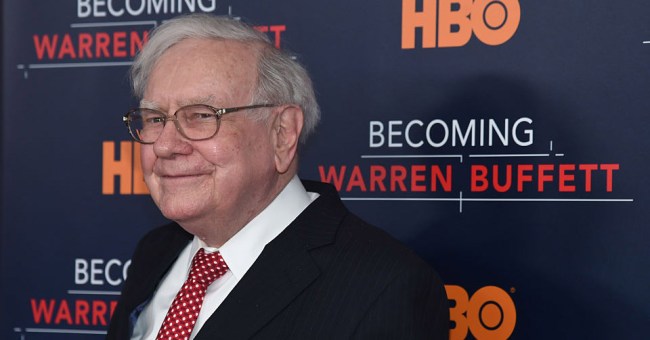
Getty Image
If anyone in the world of finance knows how and why to invest during periods of inflation, Warren Buffett is certainly one of those people.
Inflation was a popular topics of Buffett’s annual Berkshire letters during the high inflation of the late 1970s and early 1980s so it’s a topic he knows very well.
Speaking to Fortune magazine in 1977, Buffett had this to say about inflation, “The arithmetic makes it plain that inflation is a far more devastating tax than anything that has been enacted by our legislatures. The inflation tax has a fantastic ability to simply consume capital. It makes no difference to a widow with her savings in a 5% passbook account whether she pays 100% income tax on her interest income during a period of zero inflation, or pays no income taxes during years of 5% inflation. Either way, she is “taxed” in a manner that leaves her no real income whatsoever. Any money she spends comes right out of capital. She would find outrageous a 120% income tax, but doesn’t seem to notice that 6% inflation is the economic equivalent.”
So what does Warren Buffett suggest we do with regard to investing in stocks during periods of high inflation? Eric Rosenbaum of CNBC compiled nine tips from Buffett on the subject.
1. When you are doing great, it is the time to remember inflation.
“…the inflation rate, coupled with individual tax rates, will be the ultimate determinant as to whether our internal operating performance produces successful investment results.”
2. During high inflation, earnings are not the dominant variable for investors.
“High rates of inflation create a tax on capital that makes much corporate investment unwise – at least if measured by the criterion of a positive real investment return to owners.”
3. Understand the math of the ‘Misery Index.’
“The inflation rate plus the percentage of capital that must be paid by the owner to transfer into his own pocket the annual earnings achieved by the business (i.e., ordinary income tax on dividends and capital gains tax on retained earnings) — can be thought of as an ‘investor’s misery index.'”
4. Inflation is a ‘tapeworm’ that makes bad businesses even worse for shareholders.
” Whatever the level of reported profits (even if nil), more dollars for receivables, inventory and fixed assets are continuously required by the business in order to merely match the unit volume of the previous year.”
5. Focus on companies that generate rather than consume cash.
“However attractive the earnings numbers, we remain leery of businesses that never seem able to convert such pretty numbers into no-strings attached cash.”
6. Look for companies that can increase prices and handle a lot more business without having to spend a lot.
“Such favored business must have two characteristics: (1) an ability to increase prices rather easily (even when product demand is flat and capacity is not fully utilized) without fear of significant loss of either market share or unit volume, and (2) an ability to accommodate large dollar volume increases in business (often produced more by inflation than by real growth) with only minor additional investment of capital.”
7. Always be thinking about tomorrow, especially when the pace of change picks up.
“When change is slow, constant rethinking is actually undesirable; it achieves little and slows response time. But when change is great, yesterday’s assumptions can be retained only at great cost. And the pace of economic change has become breathtaking.”
8. Corporations cannot out-manage government.
“…external conditions affecting the stability of currency may very well be the most important factor in determining whether there are any real rewards…”
9. There is no solution to inflation, but there’s reason (maybe just a little) for hope.
“The threat which alarms us may also alarm legislators and other powerful groups, prompting some appropriate response.”
View the complete article which goes into further detail over at CNBC.
The BroBible team writes about gear that we think you want. Occasionally, we write about items that are a part of one of our affiliate partnerships and we will get a percentage of the revenue from sales.